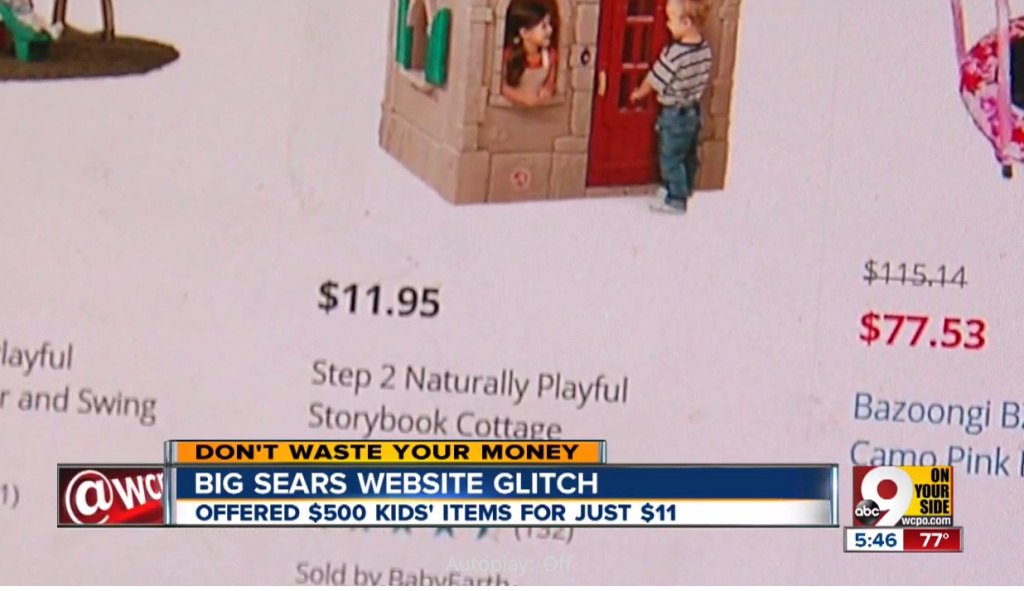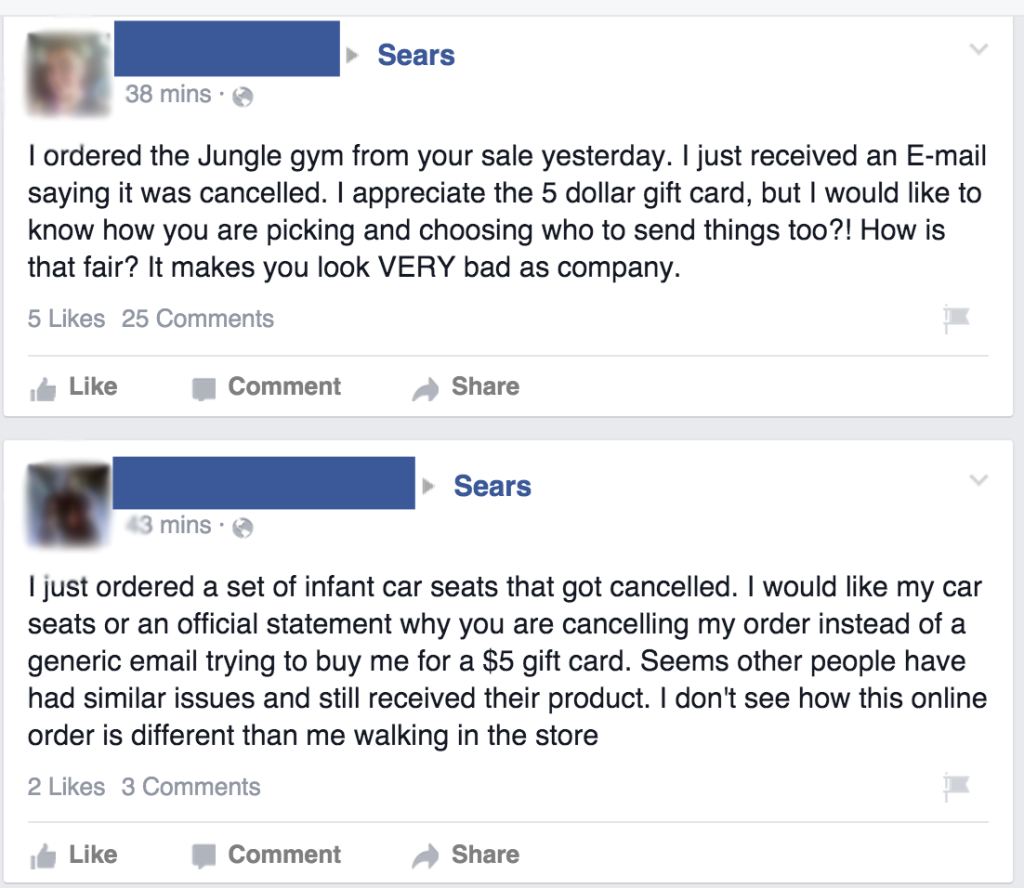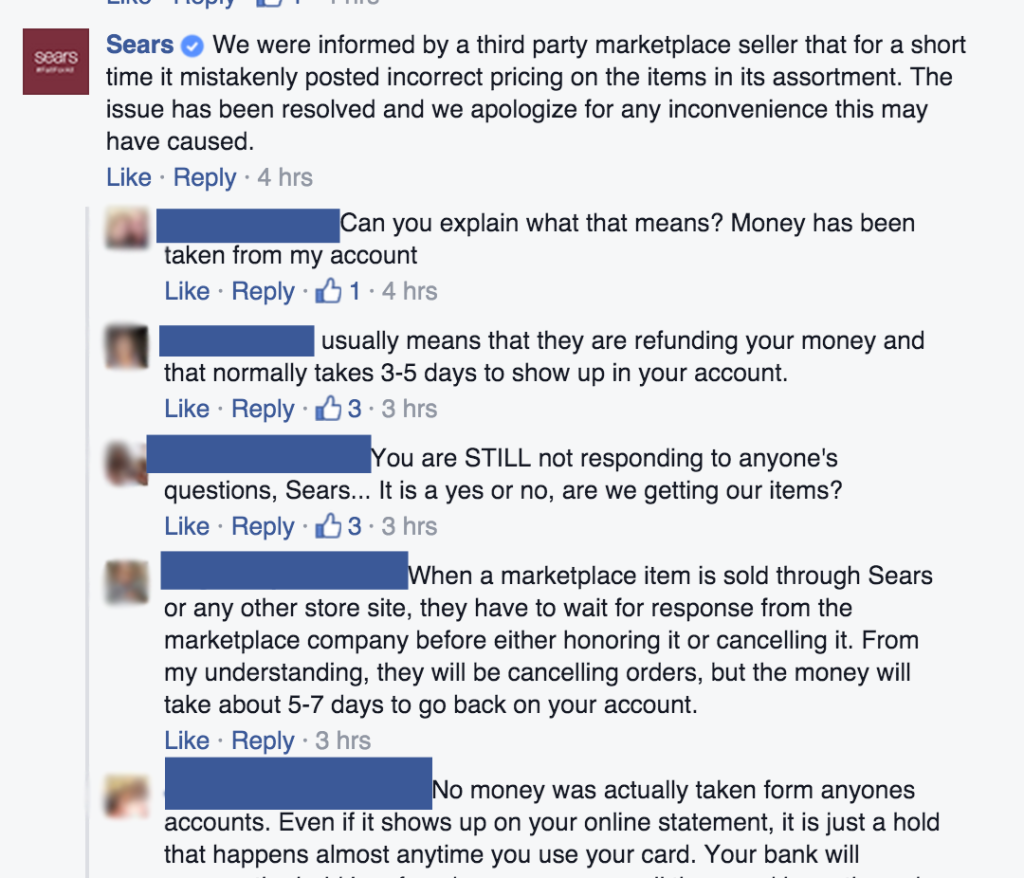No, Sears Does Not Owe You A $700 Play House For $12
 Shoppers noticed something amazing on Sears.com yesterday: kids’ accessories, toys, and play sets that cost hundreds of dollars were available for only $11.95 for no obvious reason. Parents, deal-hunters, and people who are both flocked to the website to fill up their carts with deeply discounted goodies. What happened next should be familiar to Consumerist readers: the amazing deal was a website glitch, and the orders were canceled.
Shoppers noticed something amazing on Sears.com yesterday: kids’ accessories, toys, and play sets that cost hundreds of dollars were available for only $11.95 for no obvious reason. Parents, deal-hunters, and people who are both flocked to the website to fill up their carts with deeply discounted goodies. What happened next should be familiar to Consumerist readers: the amazing deal was a website glitch, and the orders were canceled.
Following the standard pattern for these transactions, customers ran to complain to Sears about how their items from the “sale” had been cancelled. (Some of these complaints are a bit disingenuous.) The problem ultimately is that there was no “sale.” There was only ever an error on the part of a third-party merchant.

Like other retailers including Amazon, Walmart, and Barnes & Noble, Sears is able to expand its online inventory without building new warehouses by listing items from other companies on their site. Sears gets a cut of the sale, the other seller gets visibility, and everyone wins! The only problem with this transaction is that when something goes wrong, it gets attributed to Sears.
In this case, a third-party seller accidentally underpriced many of their items. Sears and that seller appear to have caught all of the errors: it’s possible that some will ship. Customers were promised $5 gift cards for their trouble.

Now, as much as we like to mock Sears and demand that they do better around here, and as much as we understand the thrill of finding a great deal, here the upset customers are in the wrong. It happens with gift cards and with appliances, but retailers are under no obligation to sell you the item as long as the original error was an honest one.
Sears website glitch: $500 playsets for $11 [WCPO]
Want more consumer news? Visit our parent organization, Consumer Reports, for the latest on scams, recalls, and other consumer issues.

